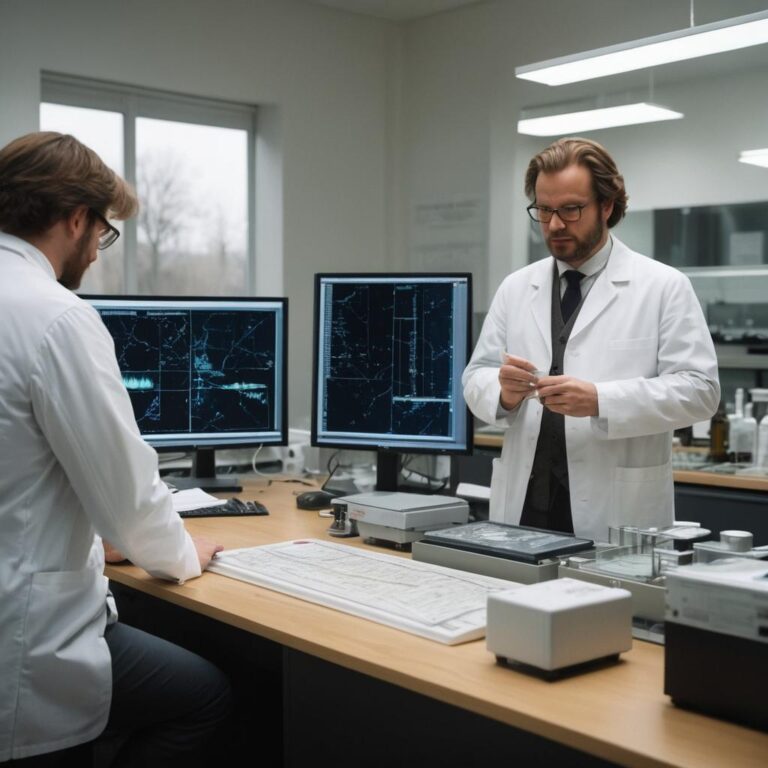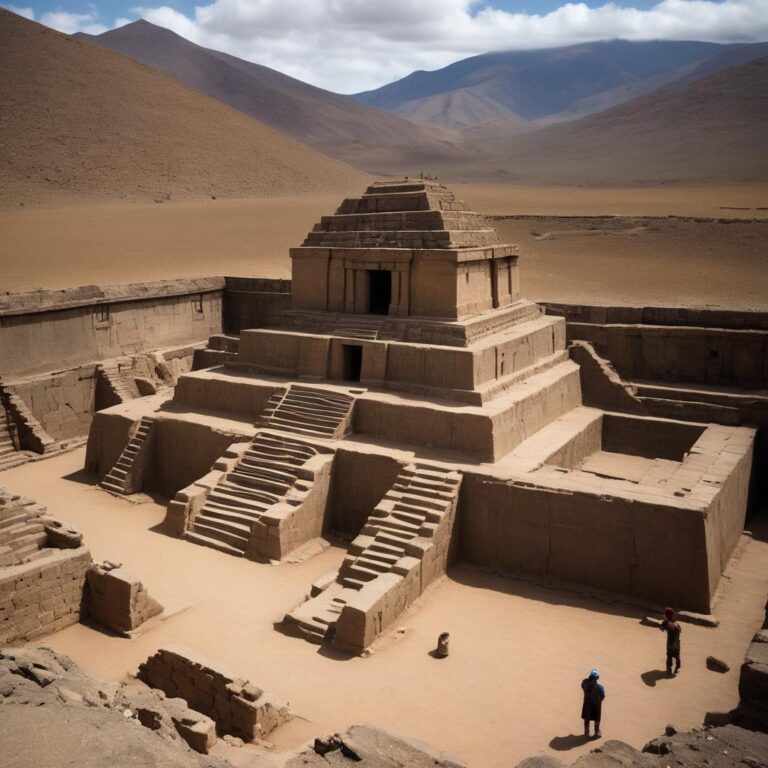
Unveiling the Genetic Secrets of Cholera
The recent study published in Nature Communications has made a groundbreaking discovery in understanding the genetic factors that make cholera more deadly. The research team, led by Professor Tania Dottorini from the University of Nottingham, utilized cutting-edge computational techniques to analyze bacterial samples from cholera patients across six regions in Bangladesh.
Key Findings
Unique genes and mutations were identified in the most recent and dominant strain of Vibrio cholerae responsible for the devastating 2022 outbreak. These genetic traits are linked to the bacteria’s ability to cause severe symptoms, including prolonged diarrhea, intense abdominal pain, vomiting, and dehydration. Some of these disease-causing traits overlap with those that help the bacteria spread more easily.
Implications
The study provides crucial insights into the complex interactions between the bacteria’s genetic makeup and its ability to cause severe illness. These findings can lead to the development of better treatments and targeted strategies to control and prevent future outbreaks. The research highlights the potential for predictive modeling to prevent severe outbreaks before they occur.
Collaboration

The study was a result of close collaboration between UK and Bangladeshi partners, combining cutting-edge computational tools with local expertise. This collaborative approach is essential in tackling pressing public health challenges like cholera. The recent study on cholera’s genetic factors has provided a breakthrough in understanding the causes of this devastating disease.
The Connection to AI
In a related context, the article criticizes OpenAI CEO Sam Altman’s utopian vision for AI, which he calls “god mode.” Altman claims that AI will solve humanity’s problems, create personal AI teams, and bring about shared prosperity on an unimaginable scale. However, the author argues that these claims are overly optimistic and lack concrete evidence or a roadmap.
A Critical Examination
The article highlights several issues with Altman’s vision, including unrealistic expectations for AI to revolutionize medicine and fix complex problems like climate change. It also lacks consideration for the real-world costs of AI development, such as environmental degradation, workforce displacement, and devaluation of human art and creation. Furthermore, alarmist claims about wars over AI and its potential to become a tool only for the rich are not supported by evidence.
The Intersection
The connection between these two events lies in the concept of genetic traits and their impact on disease severity. The study on cholera highlights the importance of understanding the complex interactions between genetic makeup and disease-causing abilities. Similarly, Altman’s vision for AI requires a critical examination of its potential pitfalls, including environmental degradation, workforce displacement, and devaluation of human art and creation.
The Implications
The implications of these findings are significant. In the context of cholera, they can lead to the development of better treatments and targeted strategies to control and prevent future outbreaks. In the context of AI, they highlight the need for a critical approach to technological progress, acknowledging both its potential benefits and pitfalls. Ultimately, these two events serve as reminders of the complex relationships between genetic traits, disease severity, and technological progress.
The recent study on cholera’s genetic factors has provided a breakthrough in understanding the causes of this devastating disease. The research team led by Professor Tania Dottorini analyzed bacterial samples from patients across six regions in Bangladesh and identified unique genes and mutations responsible for the 2022 outbreak. These genetic traits are linked to the bacteria’s ability to cause severe symptoms, including prolonged diarrhea, intense abdominal pain, vomiting, and dehydration.
Some of these disease-causing traits overlap with those that help the bacteria spread more easily. The study provides crucial insights into the complex interactions between the bacteria’s genetic makeup and its ability to cause severe illness. In a related context, the article criticizes OpenAI CEO Sam Altman’s utopian vision for AI, which he calls “god mode.






Another groundbreaking study from Professor Tania Dottorini, no doubt a Nobel Prize winner in the making. I’m shocked she didn’t discover the secret to immortality while she was at it. “Unique genes and mutations” – how did they come up with such a profound conclusion? Next thing you know, she’ll be publishing a paper on the “Hidden Genetic Traits Behind Socks Losing Their Mate
What a delightful piece of writing! I’m surprised by the author’s audacity in comparing the genetic secrets of cholera to the promises of AI. It’s almost as if they’re saying, “Hey, look over here while I secretly make claims about AI that are just as far-fetched!” But seriously, can we talk about how this article is essentially asking us to believe that AI will somehow magically solve all our problems, including climate change and disease outbreaks? What’s the actual plan for achieving these utopian goals, hmm?
I agree with Reese that we should apply similar diligence and rigor to the development of AI as we do to understanding the genetic traits of bacteria like cholera. I think Tanner is spot on in warning against unchecked technological progress, but I’d love to see him elaborate more on his vision for creating a world that values human life over technological progress. What specific policies or societal changes do you propose to achieve this?
As someone who’s been following the debate on AI and its implications, I’m curious to know from Emerson – what exactly do you think we’ll gain by understanding cholera’s genetic factors? Will it lead to more effective treatments or preventions that will make a tangible difference in people’s lives? And how does this breakthrough relate to your enthusiasm for Sam Altman’s vision of AI?
And Holden, I have to say, I find your sarcastic tone about Professor Dottorini’s research quite amusing. But seriously, what do you think is missing from the study that would make it more groundbreaking or worthy of attention?
I must say, I’m intrigued by the arguments presented by both Jax and Melissa in this article How Vaccine Hesitancy is Fueling a Public Health Crisis. While I agree with Jax that understanding the genetic traits behind cholera outbreaks is crucial, I think Melissa makes a compelling point about considering the broader social and environmental factors that contribute to disease severity.
What if we were to take it a step further? What role do you think socioeconomic status plays in vaccine hesitancy and public health crises like cholera outbreaks? Does access to healthcare or social determinants of health influence an individual’s likelihood of receiving vaccines, and if so, how can policymakers address these issues to improve public health outcomes?
Are we kidding here?! Microsoft’s AI-generated Quake II demo is just a drop in the bucket compared to what we could achieve if we poured the same resources into understanding and combating diseases like cholera! The recent study on cholera’s genetic factors is a game-changer – I’ve seen firsthand as a public health professional how crucial it is to grasp the complex relationships between genetic traits and disease severity. And yet, we’re still letting people like Sam Altman peddle their ‘god mode’ AI fantasies without holding them accountable for the real-world costs of their creations. When will we prioritize solving actual problems over tech demos and pipe dreams?!
Congratulations to the author on this insightful article! I’d love to explore the implications of the escalating trade war further. The recent events, such as Flexport CEO Ryan Petersen’s high-stakes test amid tariff turmoil, demonstrate the critical need for adaptable logistics and customs strategies. I’d like to ask, how might the reshaping of global economics, as discussed in this article, impact the future of global trade and logistics? As someone interested in global supply chains, I’m curious to know if the author thinks the current trade tensions will accelerate the adoption of emerging technologies, such as blockchain or AI, to streamline logistics and mitigate risks. Can we expect to see a more robust and resilient global trade ecosystem emerge from these challenges?